There’s a seminal moment in the BBC production THE LAST AMERICAN FREAK SHOW in which Bruce Snowdon, aka Harold Huge, Big Bruno, Howard Huge, etc., is just up and outside in the early a.m., before the show starts at the Ward Hall/Chris Christ World of Wonders. Even there in Perry, GA, it’s not exactly 100 degrees in the shade, not this autumn morning. And Bruce stands in all his voluminous glory, buck naked, getting ready to bathe the only way perhaps this last remaining fat man on any midway can when he’s on the carnival lot: with 50′ of green garden hose.
There in the early sun, the chiaroscuro behind the shows and the showmen’s trailers, Snowdon is transformed into the fattest man on earth. It suddenly doesn’t matter whether he weighs the full 712 lbs. the banner claims out front. For all you care, he weighs a ton, and you’re some mere bug about to watch a true sideshow wonder revealed: how the fats keep clean. The minute the night-cold water hits him, you find out: with great difficulty and no small amount of adventure. “I usually like to let the sun impart a little solar energy to the hose before I do this,” he says, by way of explaining to the cameraman the obvious shock when the water first hits him.
Well, I suppose that BBC director got what they wanted. And through the rest of that documentary, Bruce does his lines with the dutiful attention of the real trouper. Not a character you’d recognize when comparing him to the Bruce Snowdon you’ll meet when you visit the real show, but a character fit for the documentary anyway. In the flesh (and lots of it too, make no mistake), he’s infinitely less stiff, less formal, but no less knowledgeable. About a lot of things. Paleontology. Medicine. New York City history. Illegal fireworks for Chrissake. You name it, Bruce has read it. The primary occupational hazard for the sideshow performer, especially the freak performer, is boredom. Doing the same act over and over. Day after day. Show after show. One tip after the other. And when you’re the fat man, especially in a museum show like that run now by Hall and Christ, there’s precious little to do if you’ve got no inner resources.
Bruce has inner resources. Either that, to paraphrase the “Billy Reed-Horrors of Drug Abuse Show” Bruce mentions during his interview, either that or he’s a damn good actor. Nah. He really knows all this stuff. And loves to philosophize on it. And he’s very much the fin de siecle philosopher, blase and cynical at times, priding himself on being a keen observer of the human condition. That, of course, is what Bruce Snowdon has all the time in the world to do. Read and enjoy the view.
Seventy-some years ago, the view from the platform (and from the tip too, for that matter) was significantly different. In those days, between the world wars, you wouldn’t just go to see a lone fat in a sideshow. You’d go to see a fat review. A Congress of Fat People. Fat families. Tons of fun. Acres of human flesh. How fat were they? They were really fat.
But of course the crowd would have been only marginally different, in spirit anyway. Go read Celesta Geyer’s (“Dolly Dimples”) book DIET OR DIE. When she met her mentor, “Jolly Pearl” Stanley, the advice Celesta got could’ve been pure 1990’s: “You know, honey, everyone laughs at you now. Don’t you think it would be a good idea to make them pay for their fun?” It didn’t take Celesta long to pick up on that advice. Within weeks she was on the show with Jolly Pearl, polishing her act. And before it was over, she’d become the “It Girl of Fat Girls” (so dubbed by Clara Bow, “The It Girl” herself), and she’d learned the two most vital lessons for any sideshow performer: “…when you enjoy doing this work, your audiences reflect that enjoyment” and the ever-important advice about pitchcards (or any pitch item for that matter), that “There’s real money in these pictures.” Now there’s the sideshow equation at its best.
Bruce learned that equation pretty early on as well, and he may yet be the last fat to employ the knowledge on a midway. That knowledge was much in evidence when I interviewed him in the Hall & Christ World of Wonders show at Winter Haven, FL, the roar of the midway outside, Bruce holding forth with his gravelly voice inside on subjects many and varied.
S&A:: You’ve been with Ward Hall’s shows a lot of years haven’t you?
BS: I’ve done a number of things. For a number of years I was an illegal M80 bootlegger. We used them to settle our “backwoods firearms interactions.”
S&A:: When you were a kid?
BS: No, I wasn’t a kid.
S&A:: I guess it’s dangerous regardless when you make them.
BS: It’s very easy to explode right in your face if the mixture isn’t right. It can tear you apart if it detonates.
S&A:: I know you got busted for making them. What’s the story with that?
BS: It didn’t come to trial for a year. I was willing to plead guilty since I was just going to get tossed on probation. I go to see the probation officer. “How are you?” “I’m still making M-80’s.” “Oh. Okay. See you.” This guy, this probation officer, he’s got 800 coke freaks, a thousand junkies, one M-80 bootlegger. Needless to say the M-80 bootlegger got, “Oh? Don’t do it again.” When it was over I got a note saying, “Congratulations, you have successfully completed probation.”
S&A:: Meanwhile you hadn’t seen the guy but a couple of times in months.
BS: Yeah.
S&A:: When did you hit the road for the first time?
BS: I went out the first time in ’77. This is a freaky story about how this happened. I had put on a lot of weight between the time I was 20 and 25. I was up to about 450 in those days. I went to the local library, and I was poking through some old circus books and I see this one picture about a sideshow, maybe circa 1905, and I’m looking at this fat man and I’m saying to myself, “He can’t weigh more than 350 pounds.” Now, I ask myself, how the hell would I go about getting into a sideshow? I’d never even seen a sideshow in my lifetime. In the late ’70s the industry was a very pale ghost of its former self. Instead of thousands, there were maybe dozens left then. So I figured, logically, there’s got to be some sort of trade journal for the carnival industry. It’s Amusement Business. And I’m looking through the AB. Taking a lucky stab, I wrote the editor, Tom Powell. And Tom Powell happens to be a very good friend of Ward Hall. Bingo. I had the job.
S&A:: What does your family think about you in the business?
BS: My mother’s met Ward Hall. She knows I like it. I think now she considers me less unfortunate than she did. I think she wanted me to be a lawyer or something like that. The way things are going now, she’s really glad I can feed myself on the job. That’s the thing about lawyers: About three-quarters of them are incompetent; three-quarters of them end up starving to death. You’ve got some guy, his grandfather was a junkman. His father tried to make it as a lawyer, but Junior had a real straight head. He kept his grandfather’s junkyard. Running a junkyard these days is very, very respectable. You’re a recycler. “Recycling modules,” not junkyards!
S&A:: So what kind of things have you done in your act?
BS: [Grins and rocks back and forth, sloshing his belly like a waterbed.] I have a routine about how I eat 50,000 calories worth of food at a time. I probably only eat about twice as much again as you do. You might be able to eat one TV dinner with dessert. Instead, I’ll eat two TV dinners. But I don’t eat 25 chickens and a barrel of beer, 30 pancakes, 2 dozen eggs, 16 pounds of bacon. That could kill a sperm whale, never mind a human being. Two things: yes, I do like to eat too much and I’m not very active. I also have a tendency, of course, to “be heavy.” I probably am the heaviest man who ever lived in my family, but not by more than a century. My father used to bounce up and down from 250 to 350 and back again. And when he was on the way down, life in that family was hell. He was one of those people that, if he was miserable, he wanted everybody else to be miserable. If there’s a bitchy type of human being, it’s somebody on a diet. You’re driving down the street and you cut somebody off, you just drive in front of them, they might snarl at you. But every now and then, it’s a lot worse. They’re the ones on the diets.
S&A:: How does your season go? What is your business year like?
BS: Most generally we go out in May and stay out until about the end of October, the first part of November, then call it quits. You’re on the road for almost 9 months out of the year and you’re pretty doggoned tired and you want to get back home, kick back and relax. Until recently, I went to Maine, but uuggh! You get cold. I can’t hack those Maine winters. As far as I’m concerned, they can keep their snow and their pine trees and all the rest of it. I want sun and palm trees around me. If I never see the place again it’ll be too damn soon. When you’re my age, the cold hits you two ways: one, it’s arthritis; two, it gave me a case of the flu. Or it could be a fungal infection from the moldy old house. You know, it becomes bone dry in the winter time. It could be the heater misbehaving. You get headaches and chest congestion. You could end up with carbon monoxide poisoning. All sorts of lovely things it could be. When I got sick up north, somebody said to me, “Maybe you should go to a hospital.” I said, “What I got is a bad case of Maine.” Another thing that was bothering me then was my prostitis. But I take this antibiotic that’s strong enough to wake the dead. I know this stuff will cure anything. About half a dozen pills will cure anything. I think northern winters just don’t agree with me anymore.
S&A:: So is it pretty tough staying healthy on the road?
BS: Out on the road you have to be careful. My way of handling it is TV dinners and throwaway silverware. If silverware’s the tiniest bit dirty, you’re going to get bacteria, then you’re going to get diarrhea. This is not a good place to have diarrhea. Plus I take vitamins. But, this summer I think its been lovely. You get into some of these tents with the sun hitting on you it can be 60 degrees outside and inside the tent it’s in the upper 90’s. And you sit in here for 11-12 hours. Summers, legitimately, I’ll go through a case of pop a day when it’s in the 90’s. Open a can and pour it down your throat and whoosh it’s gone. It’s out your skin like a bad habit. But the rain is worse. Especially on a dirt lot. On this one it’s nice because they have sand down on the ground. Some places it’s a mixture of dirt and clay. Two inches of dirt turns into six inches of mud when it rains.
S&A:: I heard you had a rain storm your first day here.
BS: Yeah. Thank God I drove down here. I would have hated to get off the bus in that. The temperature was in the 40’s, there was 30-40 mph winds. The rain was streaming into the truck. Thank God I had about 4 sleeping bags on.
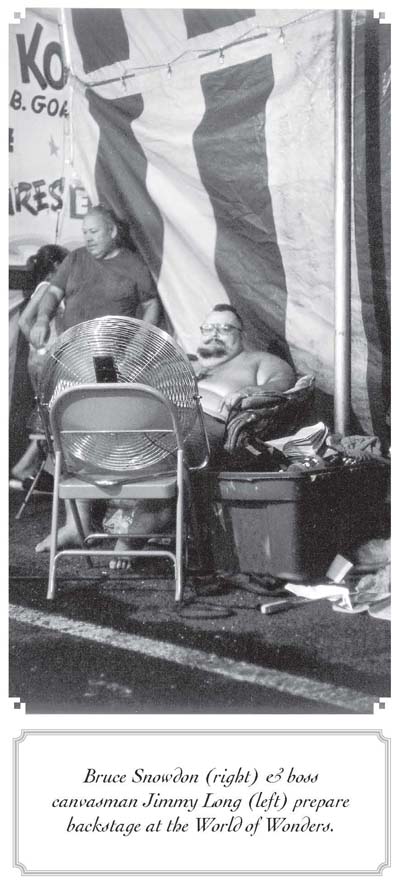 S&A:: How do you find dealing with the crowds?
S&A:: How do you find dealing with the crowds?
BS: There are some fairs that are known for their obnoxiousness. Like Brockton is the fair from hell. Brockton, Massachusetts. Until recently, they used to sell beer for about a buck for a 12 ounce cup. And the selling criteria was, “Old enough to reach up with your money, pick up your cup of beer and toddle off with it, you’re old enough to drink.” So every kid, every 14-15 year old weenie that lived within 50 miles, would drive to Brockton to get drunk at their fairgrounds. There are few things more objectionable than about ten 16-17 year old teenage boys with their bellies full of beer. They all think they’re the wittiest things on the face of the earth. Fortunately, you can take them apart easily. They all invariably say, “How big’s your penis?” The first way you can rip their heads off is to ask them, “Do you always go around asking strange men how big their penises are?” The kid will half the time turn about the same shade of red as that snake box. It really terrifies the average American 18 year old boy to think that his friends will think he’s a homosexual.
S&A:: You were with Ward’s shows back when he had the big 10-in-1, back when he had more acts. The acts here are pretty much just you and the pincushion. What’s that act like?
BS: There are a series of acts that are generically called “Torture Acts.” Sword swallowing, human blockhead, another one called iron tongue, fire eating and pincushion. Pincushion is the one that really involves physical discomfort. You take a hat pin and WHAM! That one will guarantee that people will talk about it. But Ward even has a hard time with it. You know it’s real sideshow if Ward Hall can’t stand it-he goes “Eeeww!” When we had the 10-in-1, the guy who did the pincushion, he got up to do the ding. Prayer pennies and miniature bibles, all sorts of junk. He walked up there to peddle them and you’d look down and you’d see the drops of blood.
S&A:: That’s pretty spooky. Right up there with the geek acts. I guess you don’t see much of that anymore either.
BS: There’s this guy out on the road called “Billy Reed.” He’s in a wheelchair and there’s this python and the schtick is he thinks this python’s his best friend and he sticks its head in his mouth.
S&A:: Ward was saying that you really packed them in here last night.
BS: Last night …..last night was really rocking. It was one of the biggest spots we’ve drawn. I had a wad of one dollar bills like this, maybe 72, and about 50 five dollar bills and a $20. When you get money in here like that, you are really in a poor area. Up north you’re going to have maybe one five dollar bill and a ten and you’re going to have a shortage of one dollar bills. There’s more money up there.
S&A:: In the acts you have seen in the past, what are some of the best ones you’ve seen, ones that stick in your mind and make you say, “I’m really glad to be on the platform with them”? I know you were on the shows with Otis Jordan, the Human Cigarette Factory.
BS: He worked pretty hard. You know what those thalidomide babies look like? He had German Measles and they did the same thing. His arms were little bitty stubs, his legs were little bitty legs. He’d take a rolling paper and he’d hold the paper with his tongue, put the tobacco in it and put the business into his mouth and what would come out would be a finished cigarette. He’d tuck the cigarette in one side of his mouth, pick up a kitchen match in his lips, strike the kitchen match and light the cigarette. He’d cook his own food too. This college professor, a writer, came to the show a few years ago. He was very much upset by this old black guy.
S&A:: Otis?
BS: Yeah. It was very obvious. People think there’s so much discomfort. I mean, we like it out here. It’s something we like to do. But I could no more get that through his head than I could push my finger through that center pole.
S&A:: I suppose it’s good that that professor’s not the only one writing about the shows.
BS: Have you read any of Joe McKennon’s books? He’s got an encyclopedia now. In totally exhausting detail he posits that the industry-the modern carnival industry as we know it today-started in 1893. Chicago World’s Fair. My suspicion is that it goes back much further than that. Probably the real organized carnival is less than 100 years old. Prior to that it would have been a sideshow for the circuses. You’d have a big name circus show and off to the side you’d have a sideshow. For circus people, it’s rough. The hours aren’t the best in the world. I mean it’s a vacation on the Riveria for carnies compared to the circus. A circus jump, you set up one day. You set it up in the morning, tear it down tonight and then go to bed. Jump to the next spot. If you’re lucky you get some sleep there. A lot of carnies aren’t moving that much.
S&A:: The prejudice against carnivals in general goes back a long way. The games maybe more than the shows.
BS: They’ve been writing articles-like Walter Gibson wrote articles in the 1920s and this gets repeated-an expose of carnival midway games. It’s an on-going process, something that gets repeated every couple of years: “Oh, we’re going to expose the games.” That and the cops will make a big whoopee by raiding them. No way are you going to change them. There are always going to be ways to make it harder to win. But most of these games are on the up-and-up. They depend on the fact that your average American citizen has the athletic ability of me. I have a hard time throwing a baseball into a barrel sitting from where I am. The average American could do no better. Anyone who drops 100 bucks in one of those goddamn joints-to me that’s stupid. Some guy will go in these joints for a teddy bear and he’ll blow a week’s pay trying to get it when he can go to the Toys-R-Us and buy one for $50 that’s 4 feet tall and much better construction. They’re so desperate some of these people. They’ll spend all their money. You’ll say to one of these guys, “Well-the boss isn’t around. You give me $50 for this toy, I’ll sell it to you.” And they’ll do it! There’s the basis for the television show The Price is Right. Most people don’t know the value of things. They’ll have an advertisement for washing machines-I bought one a couple of year ago for between $450 and $500-and you’ll get people off the street, average citizens, and they’ll be saying things like, “$1,600, uh, $200.” The closest call will be $900.
S&A:: I guess, “That’s entertainment.” How do you think the shows will be remembered?
BS: In ’76, the Smithsonian Institution created a full-size carnival for one night. It made you wonder.
I’ll be watching some television special and you’ll see those grainy old movies, the 1890’s. It’s weird. You just don’t get that strange feeling when you read text about the Victorian days. Five hundred years from now, what will people be able to do, just by pressing on some buttons or working from a keyboard? They’ll be able to access the [Ward] Hall and [Chris] Christ tapes and look at them just like they’re alive. I think about this: You get this feeling you’re being watched by the next 10 generations.
S&A:: How do you think they’re going to perceive your act?
BS: It’s hard to tell. They are going to wonder why anybody could be this fat now!
I’ve talked with Bruce any number of times since this interview was conducted. During one of our meetings-always in the show, him as big as a tool shed, sitting in a chair that’s just wide enough to hold him squeezed in-he told me he wondered about all the future generations and what they’d think “looking down the well of history” at all us here at the bottom. Of course he was talking directly about the sideshow biz of today, but if there’s a bigger question for everybody, I don’t know what that question could be.

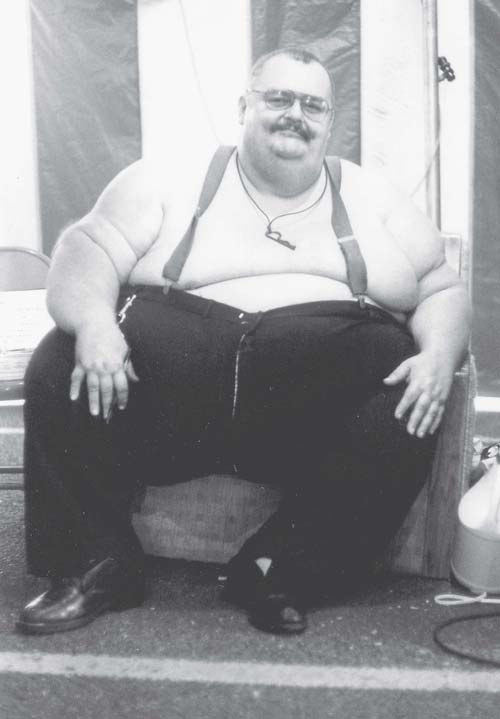
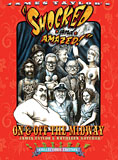
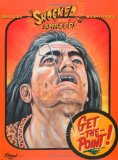
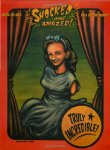
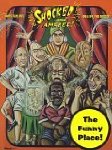
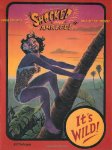

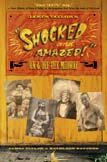
Pingback: Anderson McCrew – “The Mummified Man” – Grave Search #3 – Grave Search
Man I loved the Billy Reed show. Just like the hammy pro wrestling in the 70’s.